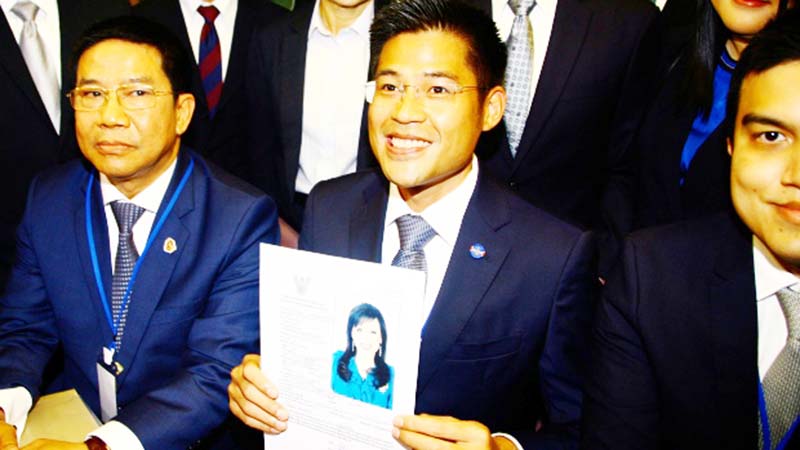
AP, Bangkok :
Thailand’s Constitutional Court on Thursday ordered the dissolution of a major political party ahead of this month’s general election because it nominated a member of the royal family to be its candidate for prime minister.
The Thai Raksa Chart Party on Feb. 8 nominated Princess Ubolratana Mahidol as its candidate for the March 24 polls. However, her brother King Maha Vajiralongkorn later that day issued a royal order calling the nomination highly inappropriate and unconstitutional.
The court in its ruling also banned members of the party’s executive board from political activity for 10 years.
The decision will raise fresh questions about the fairness of the upcoming election, the first since a military coup toppled the democratically elected government in May 2014.
Thai Raksa Chart is aligned with former Prime Minister Thaksin Shinawatra, whose allied parties have won every national election since 2001 but have twice been toppled in coups. The latest election is being held under rules that are generally acknowledged to make it hard for pro-Thaksin parties to win a majority, and the dissolution of Thai Raksa Chart will make that all the more difficult.
The Constitutional Court is one of the most conservative institutions in Thailand and has consistently ruled against Thaksin and his allies.
Its statement explaining Thursday’s ruling was even more critical of the party’s action than the king’s had been. It appeared to ascribe ill intentions to the party’s actions, blaming it for endangering a tradition that keeps the royal family above politics.
It voted unanimously to dissolve the party, and by a vote of 6-3 for the political ban on its executive members.
The state Election Commission after the king’s statement last month disqualified Ubolratana’s nomination and forwarded to the court its recommendation that Thai Raksa Chart should be dissolved because its candidate was “in conflict with the system of rule of democracy with king as head of state.”
The party itself quickly asserted its loyalty to the king and said it had only good intentions in making the nomination.
Ubolratana’s registration as a candidate was a stunning move, not only because it would have broken a taboo on a senior royal running for public office, but also because it would have allied her with a party considered by many royalists to be unsympathetic to the monarchy.
Thaksin’s populist policies delivered unmatchable electoral majorities, but he was resented by the traditional ruling class, including royalists and the military. Thaksin went in exile in 2008 to avoid serving jail time on a corruption conviction he insists was politically motivated.
The leader of the ruling junta and prime minister, Prayuth Chan-ocha, is seeking to become prime minister again after March’s election, though he is not running for a seat in parliament.
One of the new laws passed under military rule allows a prime minister who is not a lawmaker to rise to the top post in a vote by the upper and lower house. The upper house is entirely appointed by the ruling junta.
Ubolratana’s nomination was initially thought of as a clever move to by Thaksin to outmaneuver the new electoral rules. But when the king issued his statement, it quickly became apparent it was a huge political blunder.
The ruling leaves the main pro-Thaksin party, Pheu Thai, in the race. But because of strategic cooperation by the parties not to split the vote in many constituencies, the overall prospects of Thaksin’s forces will be hurt.
In an analysis made ahead of the ruling, Prajkak Kongkirati, a political science professor at Thammasat University predicted that dissolution would weaken the Thaksin side significantly.
“The chance of Thaksin’s side winning the election and forming the government is still possible,” Prajkak said. “But, if the party is dissolved, the chance will be slim.”

